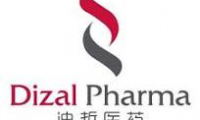-
SystImmune and Bristol Myers Squibb Announce a Global Strategic Collaboration Agreement for the Development and Commercialization of BL-B01D1
- Source: drugdu
- 121
- December 13, 2023
-
As ICER places a spotlight on pharma’s price hikes, J&J, Roche and more hit back
- Source: drugdu
- 91
- December 13, 2023
-
Abecma’s survival data show why FDA wanted expert meeting on the Bristol Myers cell therapy
- Source: drugdu
- 94
- December 13, 2023
-
Nanopore Sequencing Cuts Tumor Analysis Times and Costs, Finds Study
- Source: drugdu
- 99
- December 13, 2023
-
Seagen’s Adcetris and Bristol’s Opdivo boost hopes for another ADC, PD-1 combo
- Source: drugdu
- 107
- December 12, 2023
-
Vertex, CRISPR score landmark FDA approval for sickle cell disease gene therapy Casgevy
- Source: drugdu
- 110
- December 12, 2023
-
China Biopharm’s TQA3038 “siRNA” Phase I Clinic Completes Dosing in First Batch of Subjects
- Source: drugdu
- 102
- December 12, 2023
-
Pfizer and Arvinas plan vepdegestrant programme expansion after data at SABCS.
- Source: drugdu
- 99
- December 9, 2023
-
Daiichi Sankyo scores $182M from Novartis settlement in long-running patent case
- Source: drugdu
- 99
- December 8, 2023
your submission has already been received.
OK
Subscribe
Please enter a valid Email address!
Submit
The most relevant industry news & insight will be sent to you every two weeks.













